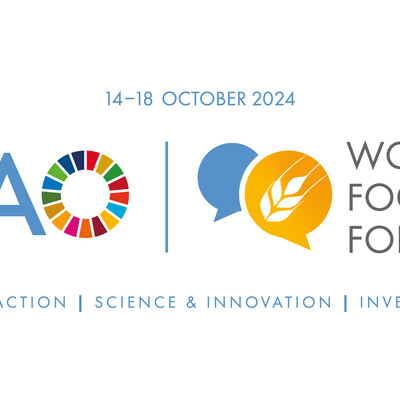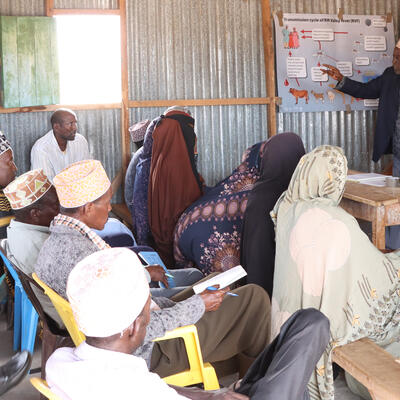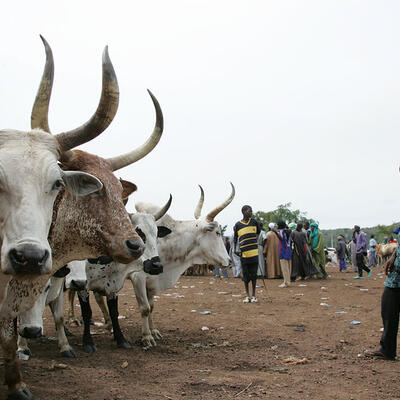
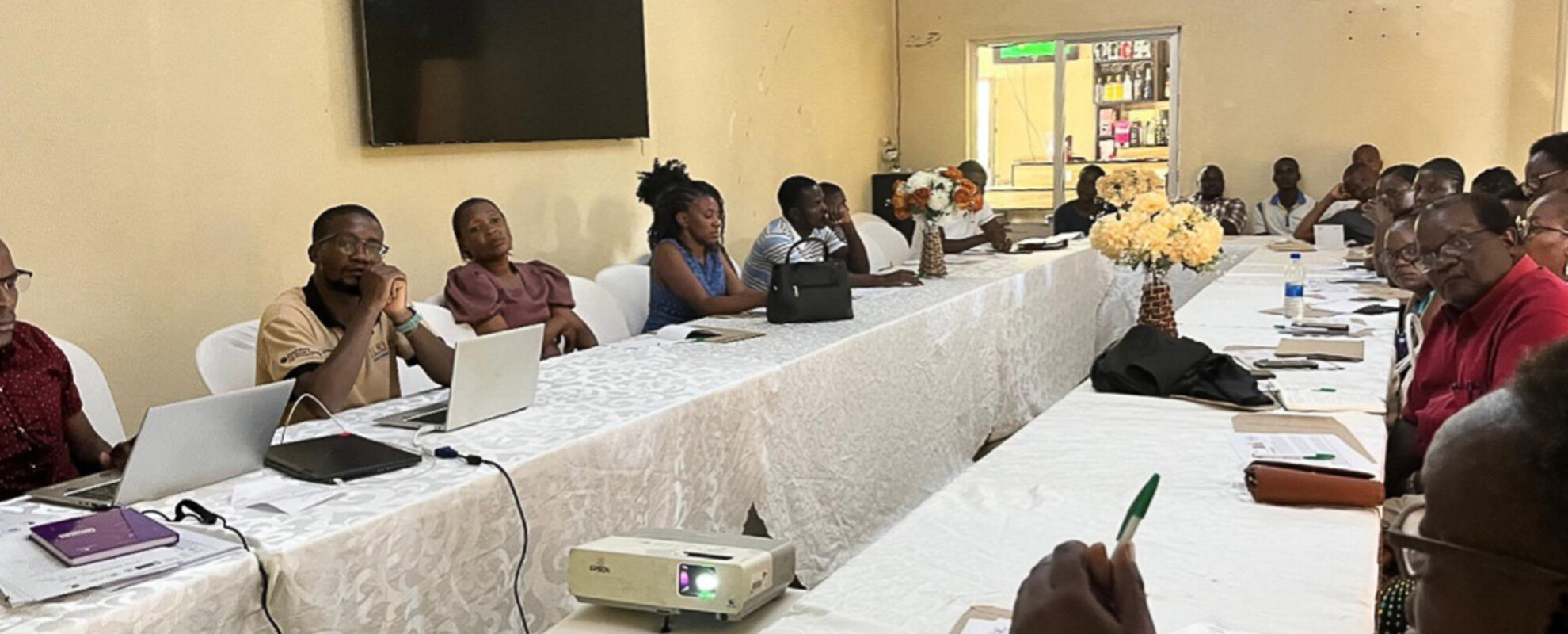
ILRI trains poultry farmers on responsible antibiotic use to reduce AMR in Lilongwe, Malawi
ILRI News
Posted on
by
- Eugine Ibayi
- Shareef Ngunguni
Contributors
For small-scale broiler farmers in Lilongwe, Malawi, antimicrobial resistance (AMR) is an ongoing challenge. A recent study by the International Livestock Research Institute (ILRI), led One Health Research, Education and Outreach Centre in Africa, titled ‘Patterns and drivers of antibiotic use in small-scale broiler production systems in Lilongwe District, Malawi’ sought to investigate practices and factors associated with this challenge and how to address them.
This cross-sectional study was conducted between December 2022 and March 2023, involving 128 farmers who managed flocks ranging from 50 to 1,000 broilers. The study found that over half (53.1%) of the farmers reported using antibiotics at least once in the previous production cycle.
Among the sampled farmers, 11 types of antibiotics were used for either treatment or preventive purposes. The most frequently used were oxytetracycline (88.2%), erythromycin (29.4%) and enrofloxacin (26.5%). Additionally, one-third of the antibiotic formulations contained multiple active ingredients, with 12% containing as many as four antibiotics, underscoring the complexity and intensity of antibiotic use in the poultry sector.
‘Many farmers believe antibiotics have growth-promoting effects, which makes them attractive for commercially oriented farmers. To prevent infections, many semi-intensive farmers use antibiotics prophylactically, which is widely viewed as an acceptable and inexpensive option rather than investing in preventative measures’ says Shareef Ngunguni the lead author of the study and a graduate fellow at OHRECA.
With these findings in hand, ILRI researchers engaged with broiler farmers, animal health professionals and local leaders in 5 feedback sessions attended by 130 people held in various administrative areas of Lilongwe District on 11–13 September 2024. The sessions aimed to address antibiotic use and AMR awareness and share best practices directly with stakeholders in the region.
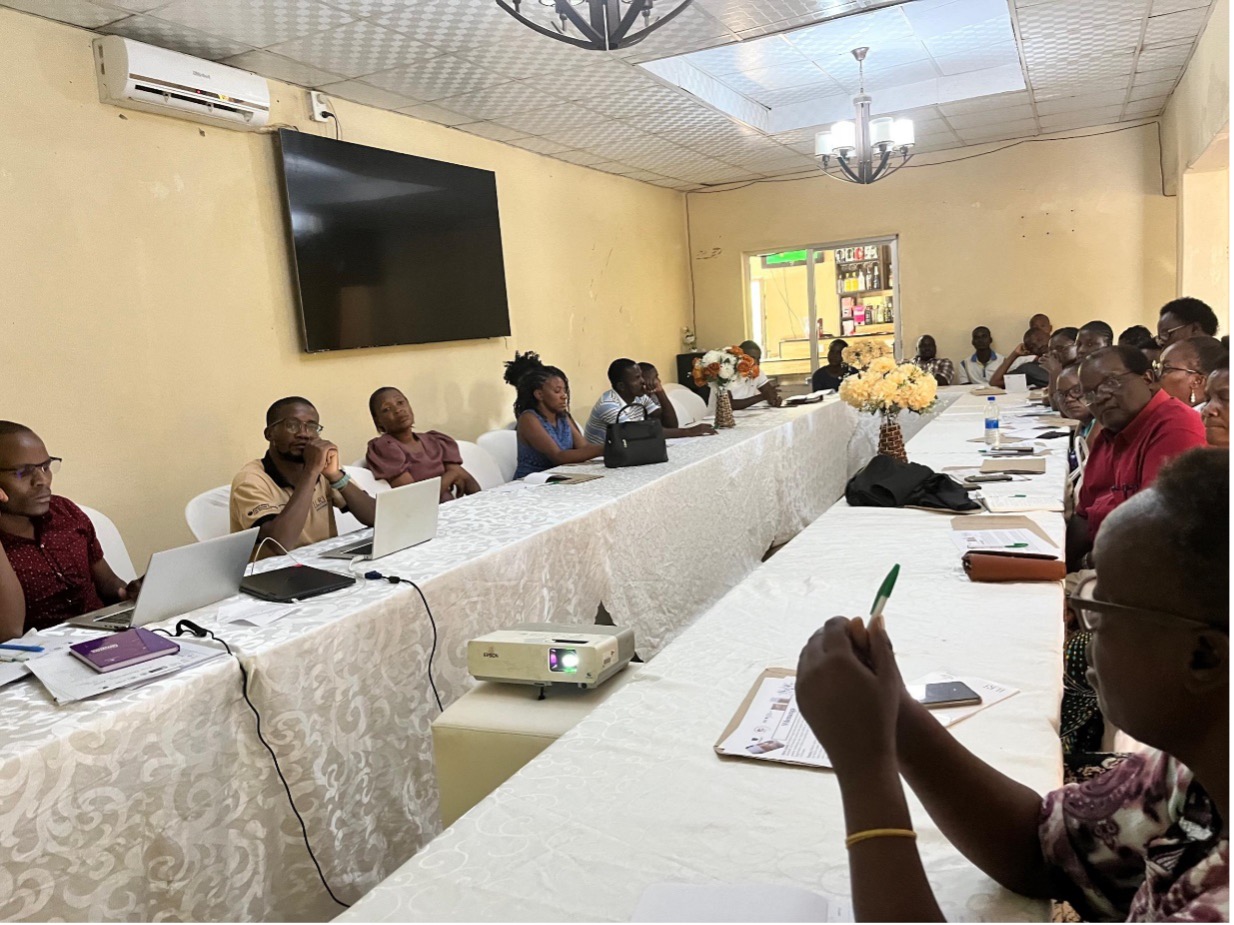
Feedback session with broiler farmers, animal health practitioners and local leaders from Areas 18 and 49 at Glalle Garden, Lilongwe, Malawi (photo credit: ILRI/Joe Magombo).
Promoting responsible antibiotic use
During the feedback sessions, researchers emphasized the need for improved management practices to reduce reliance on antibiotics in poultry production. Key recommendations included:
- Maintaining accurate records of antibiotic usage
- Adhering to vaccination schedules
- Implementing biosecurity measures, such as good housing, health monitoring, and consulting veterinarians for diagnosis
"Accurate records and vaccination adherence are essential for healthier flocks," Ngunguni noted.
Farmers were encouraged to adopt stricter measures like controlling access to poultry houses, disinfecting vehicles, and isolating sick birds.
‘It’s about safeguarding our flocks while reducing dependency on antibiotics,’ said one farmer.
Farmers expressed concerns about persistent disease issues and requested additional training from organizations.
‘We often don’t know where to find local vets,’ one farmer shared.
Animal health practitioners provided their contacts to bridge this gap. Researchers also cautioned against overusing multi-ingredient antibiotics, such as Aliseryl WS, due to antimicrobial resistance risks, emphasizing that overuse could harm both human and animal health.
ILRI continues to work with farmers in Lilongwe, supporting responsible antibiotic use and biosecurity practices to combat AMR and boost poultry productivity in Malawi.
This study was funded by the German Federal Ministry for Economic Cooperation and Development (BMZ) through the ILRI led One Health Centre in Africa (OHRECA).
You may also like
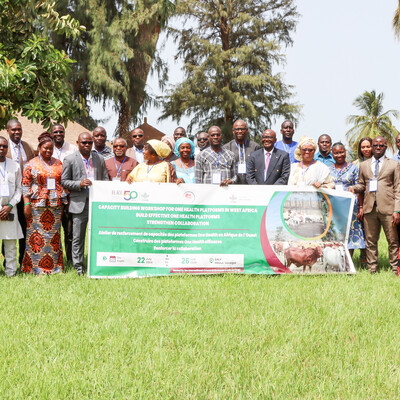
ILRI News
Senegal workshop advances collaboration and sets priorities for strengthening One Health in West Africa






